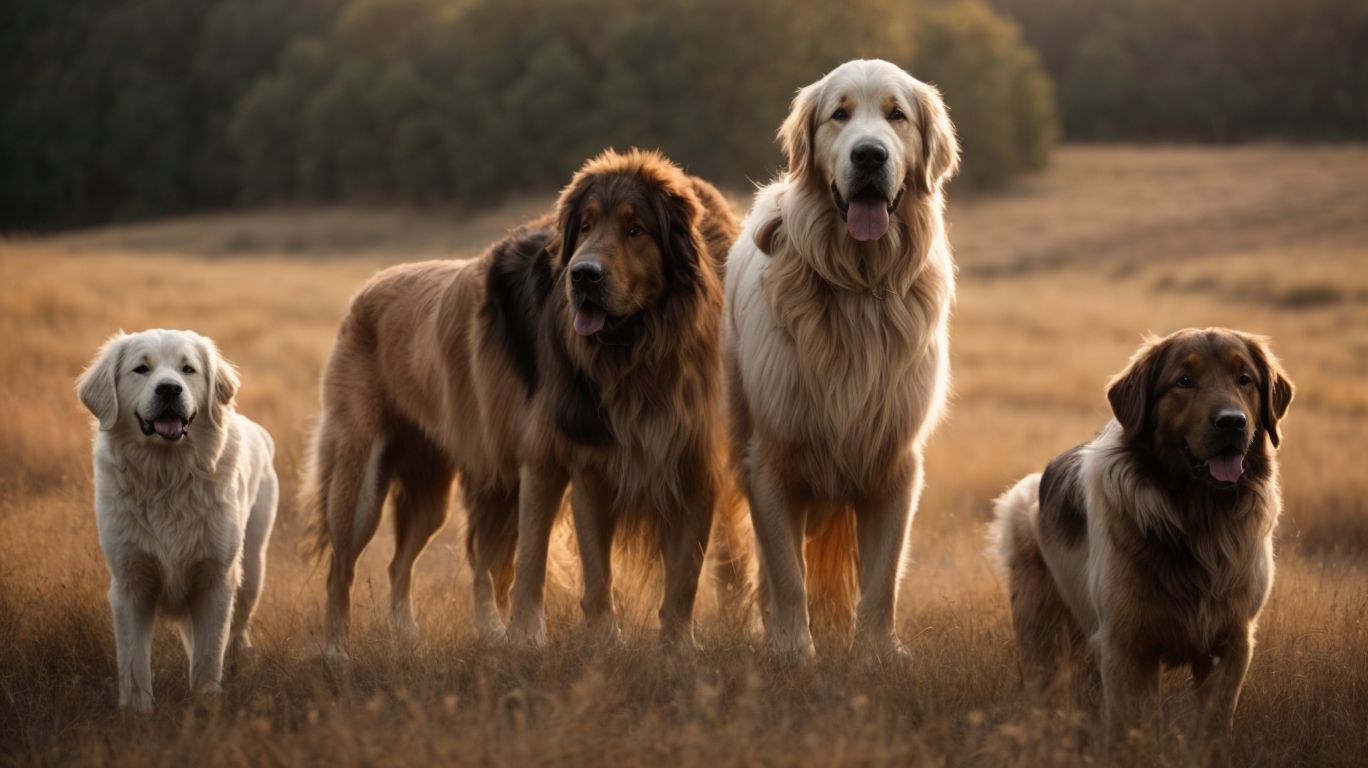
The Role of Essential Oils in Dog Nose Work
If you’ve ever wondered about the incredible capabilities of a dog’s sense of smell and how it can be harnessed for various purposes, then you’re in for a treat. In this comprehensive article, we’ll delve into the fascinating world of dog nose work and the pivotal role that essential oils can play in enhancing this practice. From understanding the importance of scent for dogs to exploring how essential oils can aid in their training and well-being, we’ll cover it all. So, grab a cup of coffee, get comfortable, and let’s embark on a journey to uncover the intriguing connections between a dog’s sense of smell and the use of essential oils.
What is Dog Nose Work?
Dog nose work, also known as scent work, is a training activity that engages a dog’s natural olfactory system to detect specific scents, leading to mental stimulation and enrichment for the canine.
By encouraging dogs to use their sense of smell, nose work provides mental and physical exercise, improving their focus and concentration. The engagement in scent work can also alleviate boredom and reduce anxiety, offering a positive outlet for their natural instincts. It can be used to improve behavior through positive reinforcement and behavior modification.
Incorporating essential oils and olfactory stimuli can enhance the sensory experience for the dog, making it a rewarding and enriching activity.
The Importance of Scent for Dogs
The importance of scent for dogs is profound, as their remarkable olfactory system, equipped with specialized olfactory receptors, enables them to engage in scent discrimination, memory retention, and mental stimulation through olfactory enrichment.
Their olfactory capabilities allow them to distinguish between various scents, aiding in tasks such as search and rescue, tracking, and sniffing out contraband. The memory retention associated with scents enables dogs to remember specific odors, making them invaluable in detecting specific substances or individuals.
Olfactory enrichment also provides mental stimulation, keeping dogs engaged and content. This highlights the significant role of scent detection in enhancing dogs’ natural abilities and improving their overall well-being.
How Dogs Use Their Sense of Smell?
Dogs utilize their sense of smell to engage in various activities such as scent detection, olfactory memory retention, and the perception of olfactory stimuli, contributing to their overall olfactory enrichment and mental acuity.
Their remarkable olfactory abilities enable them to detect scents at incredibly low concentrations, highlighting their proficiency in tracking and locating objects or individuals. Their olfactory memory allows them to recall specific scents even after extended periods, aiding them in tasks such as search and rescue operations or identifying familiar scents.
Dogs can perceive and differentiate between various olfactory stimuli, helping them decipher complex scent combinations and make sense of their environment.
What Are Essential Oils?
Essential oils are carefully extracted from various parts of plants, including flowers, leaves, and roots, to capture their unique aromatic and therapeutic properties. These oils have been used for centuries in different cultures for their potential to enhance well-being and address a range of physical and emotional concerns.
When inhaled or applied to the skin, essential oils can stimulate the olfactory system, triggering mood and emotional responses. They can be used in massage oils, diffusers, and bath products to promote relaxation and alleviate stress. The diverse applications of essential oils make them a valuable resource for natural remedies and holistic health practices.
How Are Essential Oils Extracted?
Essential oils are extracted from plants through various methods such as distillation, cold pressing, and solvent extraction, resulting in concentrated aromatic compounds that retain the natural scents and properties of the source plant.
During distillation, steam is used to extract the oils from the plant material, while cold pressing involves mechanical pressure to squeeze out the oils from the rinds of fruits. Solvent extraction, on the other hand, utilizes chemical solvents like hexane to dissolve the essential oils, which are then separated from the solvent.
Each method has its unique advantages and is suitable for different types of plants, ensuring a diverse range of essential oils for various purposes.
Are Essential Oils Safe for Dogs?
When used appropriately and in moderation, some essential oils can be safe for dogs, offering natural remedies and therapeutic benefits, while considering the canine’s olfactory sensitivity and individual reactions to specific scents.
It’s crucial to emphasize that not all essential oils are safe for dogs, as some can be toxic and harmful to their well-being. Before using any essential oil on your canine companion, it’s imperative to consult with a veterinarian or a certified animal aromatherapist to ensure the safety and suitability of the chosen oils.
Individual dogs may have different reactions to specific scents, so it’s essential to monitor their responses closely and adjust the usage accordingly. When used responsibly, essential oils can be a valuable addition to a dog’s holistic wellness routine.
The Benefits of Using Essential Oils in Dog Nose Work
The utilization of essential oils in dog nose work offers a myriad of benefits, including behavior modification, calming effects, enhanced focus, alertness, and motivation, along with sensory stimulation, stress reduction, anxiety relief, and improved mental acuity, contributing to overall performance enhancement and mental wellness for canines.
These essential oils can play a crucial role in shaping a dog’s behavior by creating a positive association with certain scents, ultimately influencing their responses. The calming effects of essential oils such as lavender or chamomile can help soothe anxious or nervous dogs, promoting a relaxed state of mind.
The use of essential oils in dog nose work can boost their concentration, alertness, and enthusiasm, creating an ideal mental state for effective performance during scent detection exercises.”
Enhances Focus and Concentration
The use of specific essential oils in dog nose work has been shown to enhance the canine’s focus, concentration, and mental stimulation, promoting problem-solving abilities and reinforcing positive behaviors through the perception of olfactory stimuli, thus contributing to improved cognitive function.
These essential oils, such as lavender, peppermint, and rosemary, have distinct aromatic properties that can aid in sharpening a dog’s sense of smell and mental acuity.
For example, the refreshing scent of peppermint oil can invigorate a dog’s mind, while the calming aroma of lavender oil may help reduce stress and anxiety, allowing the dog to focus more effectively on the task at hand.
The use of these essential oils in training sessions can provide a positive reinforcement mechanism, associating the scents with successful outcomes, further improving the dog’s cognitive abilities in nose work.
Helps Calm Nervous Dogs
Certain essential oils have a calming effect on nervous dogs, aiding in anxiety relief, stress reduction, and the promotion of relaxation, leading to behavior modification and improved mental clarity while addressing potential olfactory fatigue.
These oils, such as lavender, chamomile, and bergamot, emit soothing scents that can have a positive impact on a dog’s emotional state. The natural compounds in these oils can help to alleviate nervousness and promote a sense of calm. Through their aromatic influence, essential oils can create a reassuring environment for dogs, making it easier for them to cope with stressful situations and promoting behaviors conducive to their well-being. When used in moderation, essential oils can contribute to mental clarity without overwhelming a dog’s olfactory senses.
Can Aid in Training
The incorporation of essential oils can aid in training canines through the use of positive reinforcement, training aids, and conditioning, facilitating scent work recognition, target odors, and effective training techniques, ultimately contributing to reward-based training methods.
These oils, such as lavender, chamomile, or peppermint, can be diffused or applied topically to create a calming environment, which is beneficial when training canines to associate certain behaviors with a relaxed state. Their use can also help in conditioning dogs to specific scents, providing a useful tool for scent work recognition and target odor identification. By integrating these natural scents into training sessions, handlers can enhance the overall experience for their canine companions, promoting a positive and effective learning process.
How to Use Essential Oils in Dog Nose Work?
Utilizing essential oils in dog nose work can be achieved through various methods such as topical application, diffusing in the environment, and incorporating them into training aids, leading to environmental enrichment, olfactory training, and the promotion of natural scents for enhanced mental alertness, problem-solving, and cognitive enrichment.
This natural approach is considered effective as dogs possess a strong sense of smell, making them incredibly receptive to the scents of essential oils. Topical application can be used strategically by diluting the oils and applying them to specific areas for scent detection, while diffusing in the environment allows for a more pervasive and subtle olfactory experience.
Integrating essential oils into training aids creates positive associations and enrichment for the dog, contributing to a well-rounded sensory experience.
Topical Application
Topical application of essential oils in dog nose work can be used for conditioning, sensory stimulation, and effective training techniques, contributing to olfactory memory retention and reinforcement of positive behaviors through reward-based training methods while addressing potential olfactory fatigue.
By leveraging essential oils, dog trainers can enhance the sensory experience for the dogs during nose work activities. The application of these oils can also aid in conditioning the dog’s behavior to specific scents, thereby refining their ability to detect and differentiate various odors. This approach can be particularly beneficial for training in scent detection or search and rescue scenarios, as it hones the dogs’ olfactory abilities.
The use of essential oils encourages active engagement and focus, leading to overall improved performance and responsiveness in the training process.
Diffusing in the Environment
Diffusing essential oils in the environment for dog nose work leads to environmental enrichment, olfactory training, exposure to natural scents, and the promotion of alertness, cognitive function, and relaxation for canines.
This process enhances the sensory experience for dogs, stimulating their keen sense of smell and providing mental stimulation. By introducing a variety of scents, dogs can develop their ability to distinguish between different odors and improve their concentration and focus. Diffusing essential oils can help create a calming atmosphere, reducing stress and anxiety, which is particularly beneficial for dogs undergoing training or participating in nose work activities.
The use of essential oils in the environment contributes to the holistic well-being of canines and enriches their sensory environment.
Incorporating into Training Aids
Incorporating essential oils into training aids for dog nose work supports conditioning, recognition of target odors, and the reinforcement of positive behaviors through reward-based training, thereby promoting problem-solving abilities, sensory stimulation, and improved mental acuity.
These oils can serve as powerful tools for enhancing a dog’s olfactory senses, enabling them to differentiate between various scents, which is crucial for successful nose work. The use of specific essential oils can help create a positive association with the target odor, encouraging the dog to seek it out eagerly.
The calming properties of certain oils can also aid in reducing stress and anxiety in dogs, enhancing their overall mood and receptiveness during training sessions.
What Essential Oils are Safe for Dogs?
Selecting essential oils that are safe for dogs is crucial, and some examples include Lavender, Peppermint, Frankincense, Lemon, and Eucalyptus, which offer natural remedies and therapeutic benefits while considering the canine’s olfactory sensitivity and responses to olfactory stimuli.
Lavender, known for its calming properties, can help alleviate stress and anxiety in dogs. Peppermint, with its refreshing scent, may aid in relieving nausea and promoting digestive health. Frankincense is valued for its soothing effects, potentially supporting the immune system. Lemon provides a citrusy, uplifting aroma that may assist in revitalizing and improving mood. Eucalyptus, when used cautiously, can contribute to respiratory wellness.
It is essential to dilute these oils properly and seek professional advice when introducing them to your pet’s routine.
Lavender
Lavender is a safe essential oil for dogs, known for its calming properties, anxiety relief, stress reduction, and positive impact on olfactory perception, contributing to enhanced mental wellness for canines.
Its aromatic fragrance can help soothe dogs during stressful situations such as thunderstorms, fireworks, or separation anxiety. When properly diluted and used in moderation, lavender oil can also aid in promoting relaxation, improving sleep quality, and reducing hyperactivity in dogs.
It can be effective in minimizing symptoms of motion sickness during travel, making it a versatile and beneficial natural remedy for canine well-being.
Peppermint
Peppermint is a safe essential oil for dogs, renowned for promoting alertness, enhanced focus, and improved mental acuity, contributing to olfactory enrichment while addressing potential olfactory fatigue.
It can be used as a natural remedy to help dogs stay attentive and alert, particularly during training sessions or when they need to be particularly focused. Its stimulating properties can provide a refreshing sensory experience for dogs, which can aid in improving their cognitive functions.
When used appropriately and in the right dilution, peppermint oil can support dogs’ mental sharpness and help create a more engaging environment for them.
Frankincense
Frankincense is a safe essential oil for dogs, known for its calming and relaxing effects, promoting mental clarity while addressing olfactory sensitivity and individual responses to specific scents.
It can be particularly beneficial in creating a soothing environment for anxious or nervous dogs, helping them to feel more at ease in stressful situations. The use of Frankincense essential oil in aromatherapy for dogs can improve their sensory experience, enhancing their olfactory sensitivity and overall well-being. When used in moderation and under the guidance of a veterinarian, Frankincense essential oil can be a valuable natural remedy for promoting emotional balance and relaxation in dogs.
Lemon
Lemon is a safe essential oil for dogs, known for its positive impact on cognitive function, enhanced focus, and mental alertness, contributing to olfactory stimuli and reinforcement of positive behaviors through scent recognition.
This essential oil can be beneficial for dogs during training sessions, as the aroma helps in creating a positive and stimulating environment. Lemon essential oil may also aid in reducing anxiety and stress in dogs, promoting a calming effect. It is important to dilute the oil properly before using it on dogs, and consult a veterinarian to ensure it is safe for the specific pet.
When used cautiously and in moderation, Lemon essential oil can offer valuable support for a dog’s cognitive well-being and overall mental sharpness.
Eucalyptus
Eucalyptus is a safe essential oil for dogs, known for its benefits in promoting respiratory health, offering natural remedies and contributing to olfactory enrichment, stress reduction, and anxiety relief for canines.
Its anti-inflammatory and decongestant properties make it an effective aid in managing respiratory issues in dogs. The calming and soothing aroma of eucalyptus oil can help alleviate stress and anxiety in canines, making it useful in situations such as separation anxiety or during fireworks or thunderstorms. When used in a diluted form and with careful consideration of the dog’s size and health conditions, eucalyptus oil can be a valuable addition to a dog’s wellness routine.




No Comments